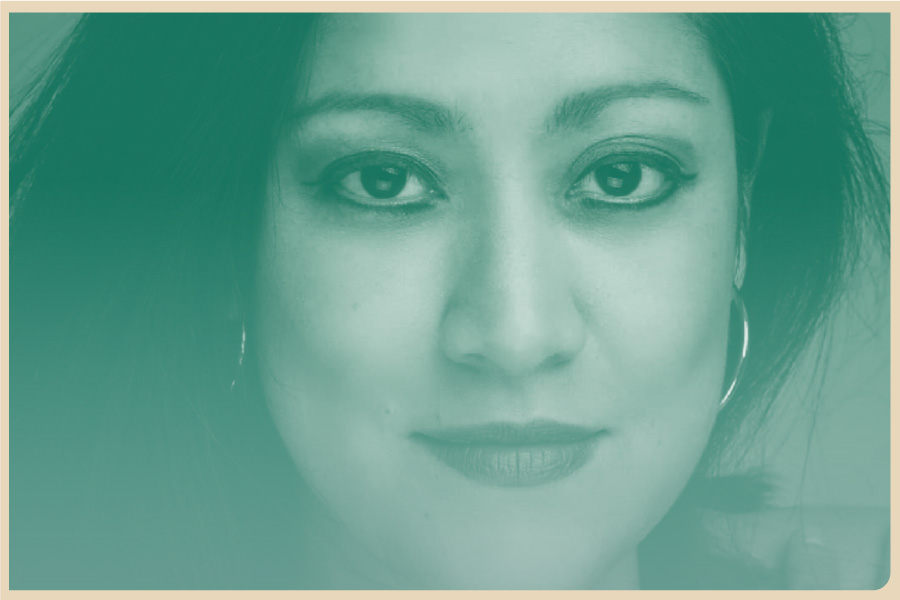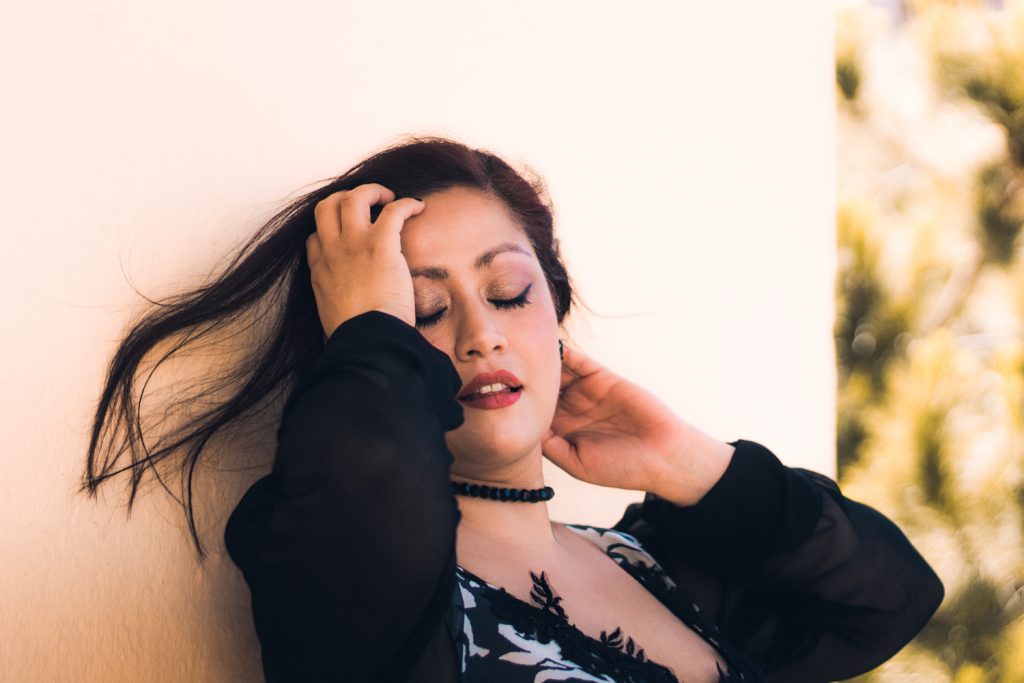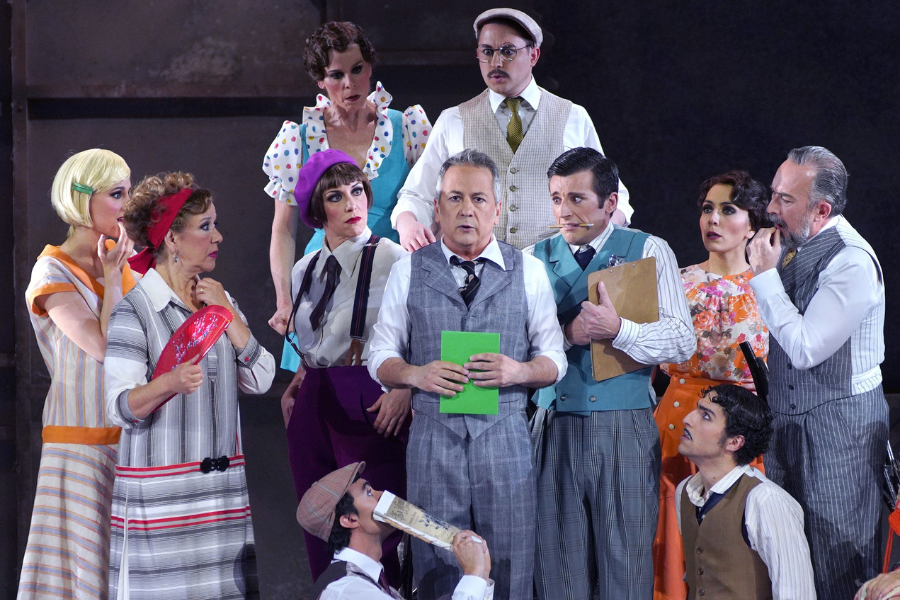Ximena Agurto, soprano: “A person’s voice is the mirror of his/her soul, something that cannot be described with words, only with facts and emotions”

The Peruvian soprano, now based in Barcelona, began her career as a soloist in 2006 in the productions and seasons of opera, zarzuela and choral symphonic in Peru. In the last decade, she has toured the great opera houses and theaters of Europe, including the Gran Teatre del Liceu in Barcelona, the National Music Auditorium in Madrid and the Bolivar Hall in London. Recognized with awards in singing competitions such as “Torrelavega 2010”, “Jacinto Guerrero 2012” and “Mirabent Magrans 2013”, today, Ximena stands out in the roles of Lauretta (Gianni Schicchi), Musetta (La Bohème), Pamina (The magic flute) and Marieta (zarzuela La Dogaresa). In this interview she tells us about her first approaches to music and her impressions on the diffusion of Latin American opera in the world.
“The soprano who has seduced the Liceu”. This was the title of a morning show on channel TV3 in 2014 to highlight the flourishing career of the Peruvian soprano Ximena Agurto. That year, Ximena won the third prize in the Francisco Viñas international competition held by the Gran Teatre del Liceu in Barcelona. Since she made her debut in the Catalan city in 2011 (singing Beethoven’s Mass in C), Ximena’s career has taken leaps and bounds.
Her passion for lyrical genre, whether in opera or zarzuela, has led her to tour large stages and halls in Europe, such as the National Music Auditorium in Madrid, the Palau de la Música in Valencia and the Nieuwe of Littéraire Societeit de Witte de The Hague, among others.
Among her most prominent roles, we can mention Lauretta (Gianni Schicchi), Adina (L’elisir d’amore) or Violetta (La traviata). However, Ximena admits that: “I am making my dream role come true in recent times and it is the Mimi of La Bohème, I would love to be able to sing it at the Gran Teatro Nacional of my country and at Teatro Mayor Julio Mario Santo Domingo in Bogotá”.
In this exclusive interview for Ópera Latinoamérica, Ximena tells us about her beginnings in opera, which were marked by the key role of a singing teacher, and also explains what are the aspirations that she maintains for the future of her career.
- What is your first memory with music? How did you approach it? Was there a special person who showed you this world? Do you remember the first time you went to a theater?
My first memory is in school, I was part of the choir and for the first time they gave me a solo in a Latin American song. My first singing teacher, Marlene Mendoza, was the one who taught me the world of poetry, she was a soprano. I don’t remember if it was the first time I went to a theater, but the one I remember was me in the national choir and we participated in the choirs of the Lima opera season, it was the Segura Theater around 2005.
- How has your culture influenced the performance of your work? Do you think that the origin of a person influences the ways of making art?
I have always thought that a person’s voice is the mirror of their soul, something that cannot be described with words, only with facts and emotions, therefore I understand that the cultural influence of your place of origin may be intrinsic but you will be able to identify them to the extent that you identify or manage to transmit with your voice those lessons from your parents, customs of daily life in my place, the richness of its history, and so on.
- How was your professional debut in the lyrical scene? What work or piece did you sing? Can you describe to me what you remember from that moment?
My debut was in 2006 playing the role of Zerlina in Mozart’s opera Don Giovanni, at the Segura Theater in Lima and thanks to the trust of the great teacher and tenor Luis Alva. It was wonderful, I really enjoyed it and I remember studying non-stop, it is a complex opera and more for my youth at that time.
- What has been the main challenge in your professional development? How do you approach those difficulties or challenges?
My main challenge was to participate in the Francisco Viñas international singing competition where I won the 3rd official award and three extraordinary awards, including the audience award. It was a competition of a very high level, I presented myself without thinking of winning any prize just by participating and taking each stage – audition as a super concert whose sole purpose was to reach the public and make them happy, so I entered each test with the greatest tranquility and happiness possible.
- Do you have any creative or preparation process for your lyrical roles? Could you describe it?
Not really, all the preparation is musical, cognitive to understand and get into character and then scenic. Perhaps something particular is that when I am already in the process of memorizing, I put on headphones with the version that I like the most of the work and I clean, tidying up, doing other things that try to distract me from the music in order to control my memory like a I challenge all the eventualities that may happen on stage.
- What has been your favorite role or character to sing? What did you like the most?
I think that is a process, before it was Adina from L’elisir d’amore, it gave me great satisfaction and emotions and now it is Mimi from La Bohème, who fills me with emotions and provides me with great technical and interpretive learning.
- What role should art have in the moments that we live today?
A role of company and healing, in many cases we still have to do certain confinements or quarantines and music is a faithful and enriching company and healing because this pandemic is not over yet and there are many people suffering its effects and consequences, the power of the music, art is incalculable and miraculous.
- Now thinking about Latin America, do you think there is enough promotion of Latin American opera? What could be done about it?
I think that now, with the creation of virtual platforms, you are beginning to be on the showcase and that is excellent. I believe that the appearance of critical magazines and news from the world of lyric at all interpretative levels is important, where it is not only published from large theaters but from smaller-format shows in order to also help them grow in image since many times these formats, perhaps minor in appearance, they have leading soloists and interpreters.
- What is your diagnosis regarding how the Latin American environment has faced the challenges of the pandemic?
Optimal since you have not stopped publishing and organizing meetings with renowned singers, talks, conferences that help us to get back on track under new conditions and formats.
- What is your dream role? In what theater would you like to perform it? Who would you like to share the stage with? Is there a Latin American work that you would like to perform?
I am making my dream role a reality in recent times and it is the Mimi de La Boheme, I would love to be able to sing it at the Gran Teatro Nacional of my country and at the Teatro Mayor in Bogotá, a city that brings me great memories.
- If you had to choose five composers, works, artists or records to live on a desert island, what would they be?
Ravel, Sondra Radvanosky, Franco Corelli, Schumann and Eduardo Javier Piano Concerto.






